Nov 15, 2023The U.S. Constitution does not dictate the number of justices on the Supreme Court, but states only: “The judicial Power of the United States, shall be vested in one supreme Court, and in such inferior Courts as the Congress may from time to time ordain and establish.
SC Collegium recommends names of Additional and Permanent Judges for 6 High Courts
Feb 17, 2016For years now, lawyers have been floating proposals that future high-court justices spend no more than 18 years at a time on the Supreme Court bench. The plan would space out appointments, so

Source Image: al.com
Download Image
(AP Photo/Andrew Harnik) Appointing someone to the Supreme Court is one of the most important actions a U.S. president can make. That’s because, under the Constitution, Supreme Court justices have lifetime tenure unless they resign, retire, or are removed from office.

Source Image: lawinsider.in
Download Image
Is there a need for Supreme Court term limits? | Pro/Con Tyler Cooper Regardless, there is no need to reinterpret “good behavior” because the most common proposal to fix interminable tenures at the high court — an 18-year nonrenewable term limit for future justices, with an appointment every other year — would not remove a justice from her “office” upon completion of her term.
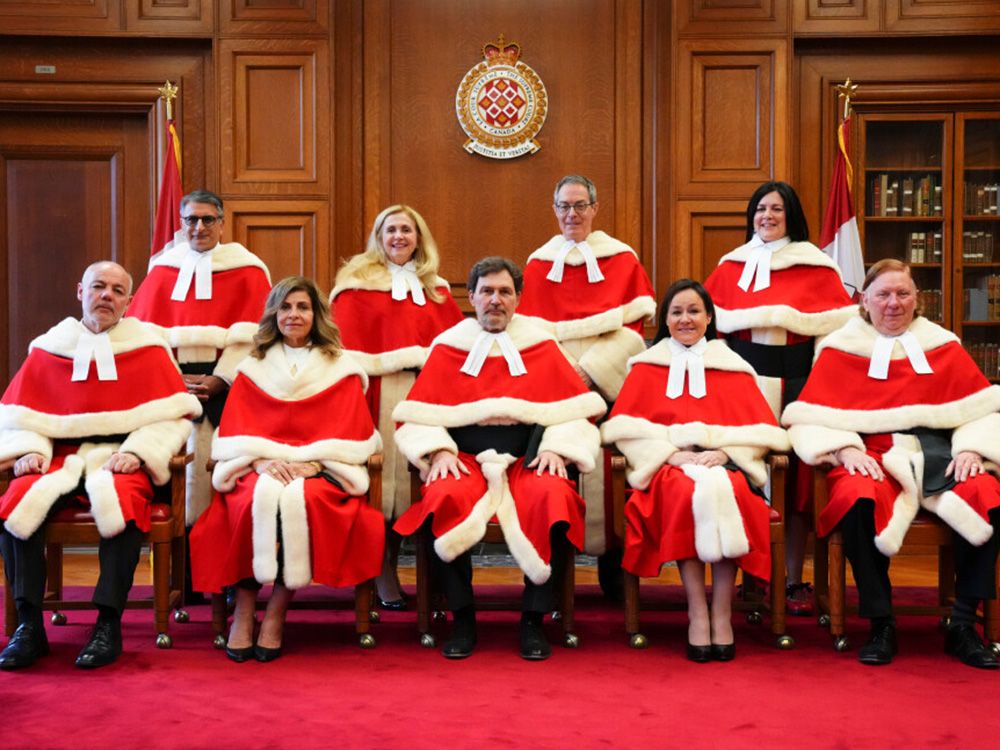
Source Image: nationalpost.com
Download Image
Pros And Cons Of Lifetime Appointment For Supreme Court Justices
Tyler Cooper Regardless, there is no need to reinterpret “good behavior” because the most common proposal to fix interminable tenures at the high court — an 18-year nonrenewable term limit for future justices, with an appointment every other year — would not remove a justice from her “office” upon completion of her term. May 4, 2022The average age of Supreme Court justices at the time of their appointment has remained stable since the late 1700s at about 50 to 55, but life expectancy since then has soared. Advertisement
Judges increasingly make governmental decisions: Supreme Court justice | National Post
PRO: No Politically Motivated Retirements Robin Marchant/Getty Images Entertainment/Getty Images Justices wouldn’t retire early just for political gain, where they wait for a president who is of Should Supreme Court justices have term limits? | Pro/Con
/cloudfront-us-east-1.images.arcpublishing.com/pmn/DCUID3OJJBFPXMHVIKHLREPEGY.jpg)
Source Image: inquirer.com
Download Image
The Supreme Concern: The History of Bias and Power in the Supreme Court | The Saturday Evening Post PRO: No Politically Motivated Retirements Robin Marchant/Getty Images Entertainment/Getty Images Justices wouldn’t retire early just for political gain, where they wait for a president who is of
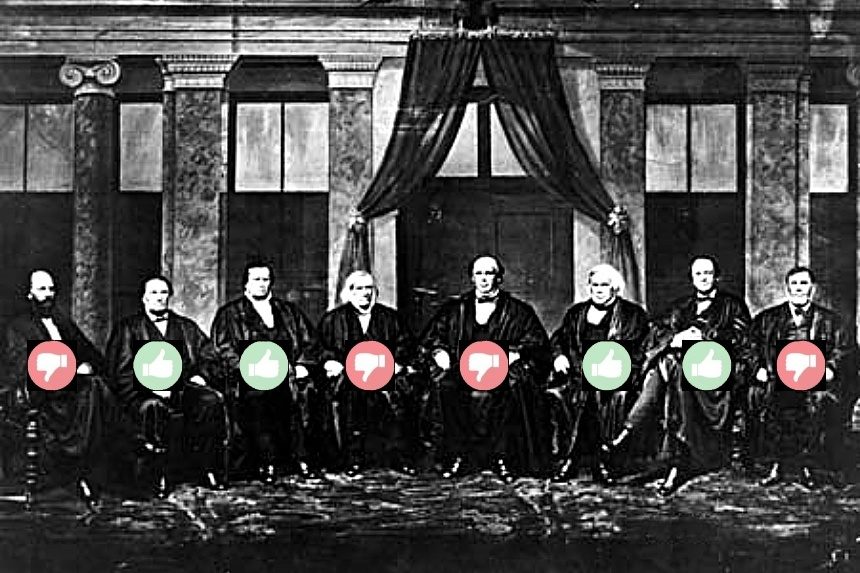
Source Image: saturdayeveningpost.com
Download Image
SC Collegium recommends names of Additional and Permanent Judges for 6 High Courts Nov 15, 2023The U.S. Constitution does not dictate the number of justices on the Supreme Court, but states only: “The judicial Power of the United States, shall be vested in one supreme Court, and in such inferior Courts as the Congress may from time to time ordain and establish.
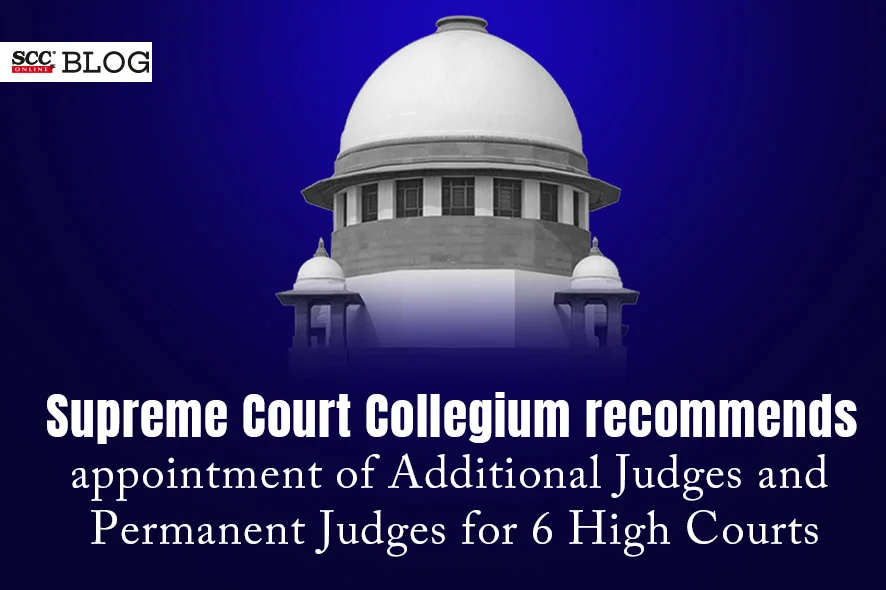
Source Image: scconline.com
Download Image
Is there a need for Supreme Court term limits? | Pro/Con (AP Photo/Andrew Harnik) Appointing someone to the Supreme Court is one of the most important actions a U.S. president can make. That’s because, under the Constitution, Supreme Court justices have lifetime tenure unless they resign, retire, or are removed from office.

Source Image: inquirer.com
Download Image
Know Your Judge- Supreme Court of India: Justice B.R Gavai Approximately 53 percent of Americans believe the Supreme Court should have term limits and a mere 28 percent believe justices should serve for life, according to a 2018 survey. [6] Although there is public support for term limits, enacting them is more complicated. Part II will discuss the constitutionality of term limits.
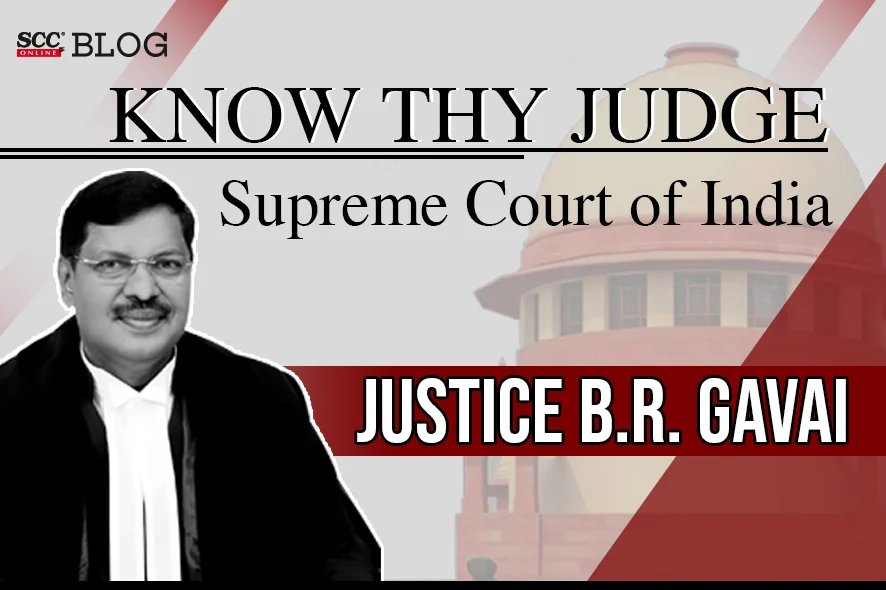
Source Image: scconline.com
Download Image
7 Pros & Cons Of Supreme Court Justice Term Limits For You To Consider Tyler Cooper Regardless, there is no need to reinterpret “good behavior” because the most common proposal to fix interminable tenures at the high court — an 18-year nonrenewable term limit for future justices, with an appointment every other year — would not remove a justice from her “office” upon completion of her term.
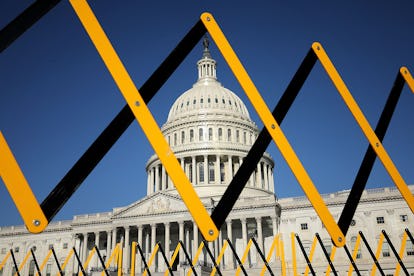
Source Image: bustle.com
Download Image
Opposing views of Ginsburg, Barrett reveal deep divisions over perceived role of Supreme Court judges | CBC News May 4, 2022The average age of Supreme Court justices at the time of their appointment has remained stable since the late 1700s at about 50 to 55, but life expectancy since then has soared. Advertisement

Source Image: cbc.ca
Download Image
The Supreme Concern: The History of Bias and Power in the Supreme Court | The Saturday Evening Post
Opposing views of Ginsburg, Barrett reveal deep divisions over perceived role of Supreme Court judges | CBC News Feb 17, 2016For years now, lawyers have been floating proposals that future high-court justices spend no more than 18 years at a time on the Supreme Court bench. The plan would space out appointments, so
Is there a need for Supreme Court term limits? | Pro/Con 7 Pros & Cons Of Supreme Court Justice Term Limits For You To Consider Approximately 53 percent of Americans believe the Supreme Court should have term limits and a mere 28 percent believe justices should serve for life, according to a 2018 survey. [6] Although there is public support for term limits, enacting them is more complicated. Part II will discuss the constitutionality of term limits.